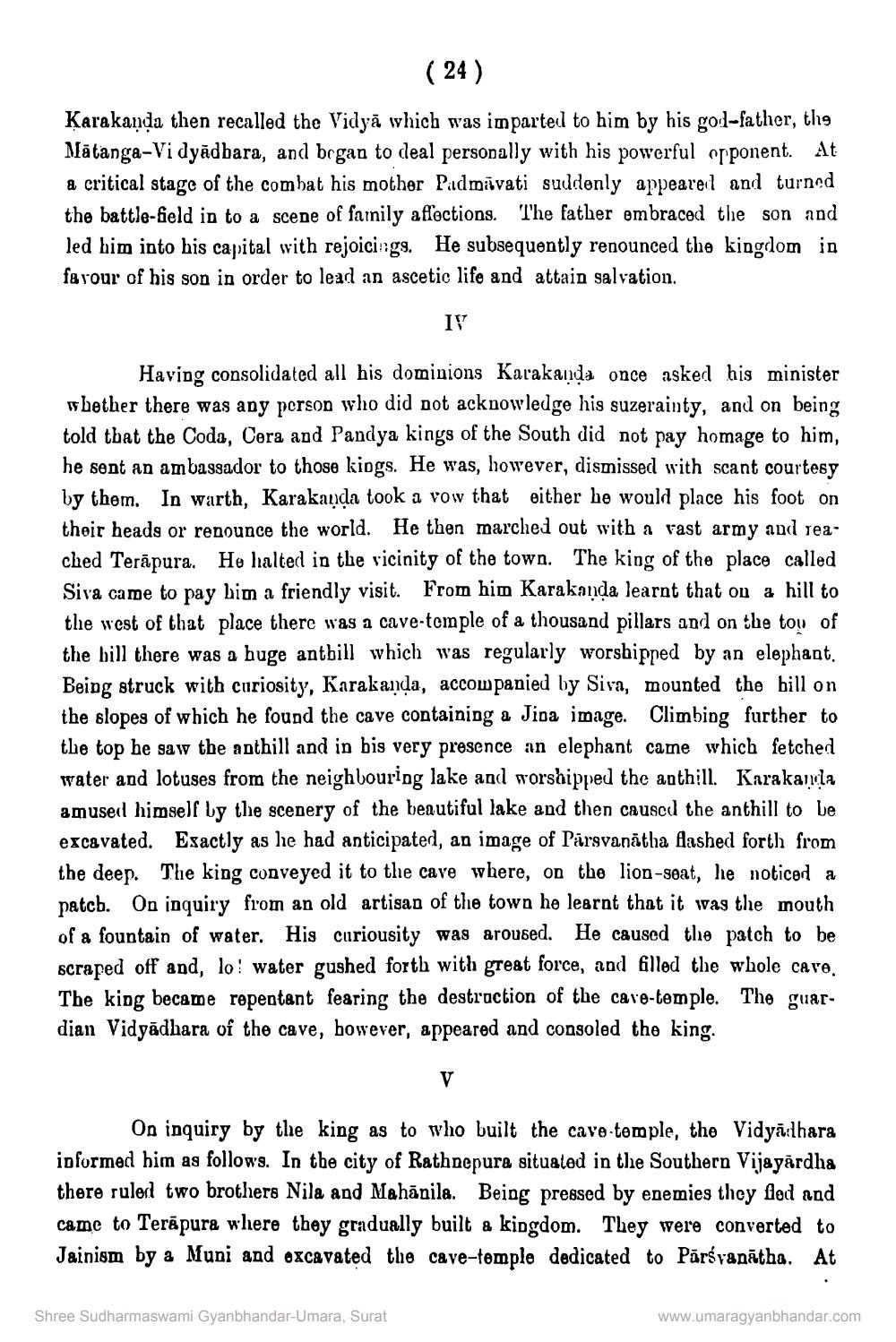________________
( 24 )
Karakanda then recalled the Vidyā which was imparted to him by his goil-father, the Mātanga-Vi dyādbara, and began to deal personally with his powerful opponent. At a critical stage of the combat his mother Padmavati suddenly appeared and turned the battle-field in to a scene of family affections. The father embraced the son and led him into his capital with rejoicing. He subsequently renounced the kingdom in førour of his son in order to lead an ascetic life and attain salvation.
IV
Having consolidated all his dominions Karakanda once asked his minister whether there was any person who did not acknowledge his suzerainty, and on being told that the Coda, Cera and Pandya kings of the South did not pay homage to him, he sent an ambassador to those kings. He was, however, dismissed with scant courtesy by them. In warth, Karakaưda took a vow that either he would place his foot on their heads or renounce the world. He then marched out with a Fast army and seached Terāpura. He halted in the vicinity of the town. The king of the place called Siva came to pay him a friendly visit. From him Karakanda learnt that on a hill to the west of that place there was a cave-temple of a thousand pillars and on the top of the bill there was a huge antbill which was regularly worshipped by an elephant. Being struck with curiosity, Karakanda, accompanied by Siva, mounted the bill on the slopes of which he found the cave containing a Jina image. Climbing further to the top he saw the anthill and in bis very presence an elephant came which fetched water and lotuses from the neighbouring lake and worshipped the anthill. Karakanda amused himself by the scenery of the beautiful lake and then caused the anthill to be excavated. Exactly as he had anticipated, an image of Pārsvanātha flashed forth from the deep. The king conveyed it to the cave where, on the lion-seat, le noticed a patcb. On inquiry from an old artisan of the town he learnt that it was the mouth of a fountain of water. His curiousity was aroused. He caused the patch to be scraped off and, lo! water gushed forth with great force, and filled the whole cave. The king became repentant fearing the destruction of the cave-temple. The guardian Vidyādhara of the cave, bowever, appeared and consoled the king.
V
On inquiry by the king as to who built the cave temple, the Vidyā:lhara informed him as follows. In the city of Rathnepura situated in the Southern Vijayārdha there ruled two brothers Nila and Mahānila. Being pressed by enemies they fled and came to Terāpura where they gradually built a kingdom. They were converted to Jainism by a Muni and oxcavated the cave-temple dedicated to Pārsvanātha. At
Shree Sudharmaswami Gyanbhandar-Umara, Surat
www.umaragyanbhandar.com




